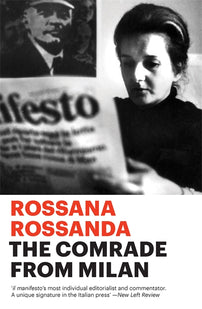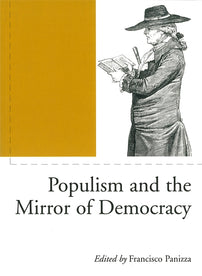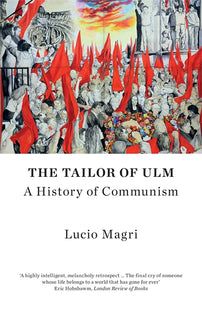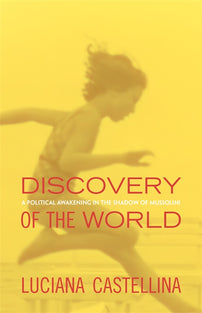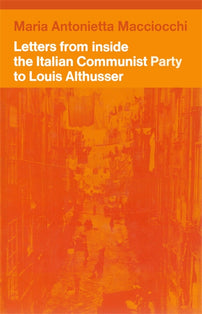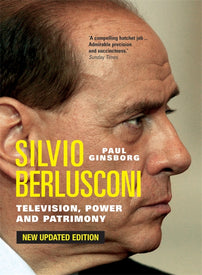Rossana Rossanda: We shouldn’t oversimplify the current Italian situation.
An interview with Rossana Rossanda on the Italian elections and the future of the Italian left.
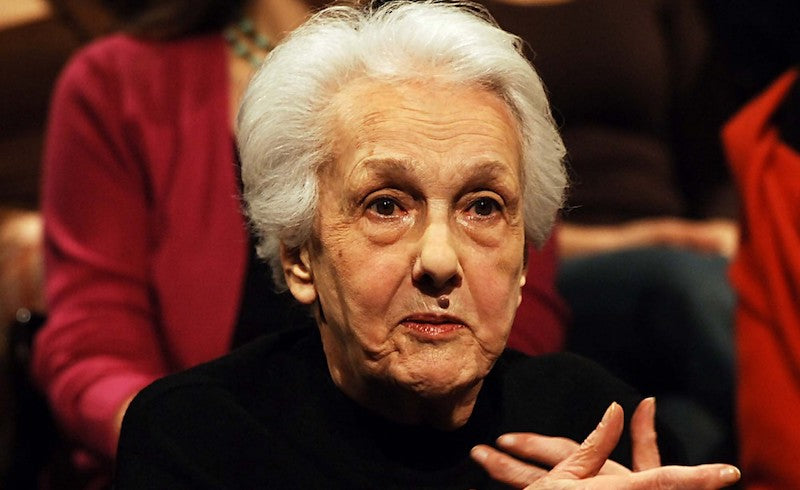
First published in il manifesto. Translated by David Broder.
"The drama of the electoral result in March lies not so much in the separation between North and South, which is nothing new. The worst thing is that Italy has never been so totally right-wing." "To tell the truth, the questions that you pose would deserve a whole book. Already in the 1980s my idea of il manifesto was precisely that it should be a laboratory in which to bring a few people together around the main problems."
That was how our interview with Rossana Rossanda began.
The election result saw the advance of two "anti-systemic" political forces, the Movimento 5 stelle (M5S) in the South, a "populist" and anti-corruption movement, and, as part of the right-wing coalition, the populist-racist Lega in the North. What risks can you foresee?
I do not think that the greatest disaster lies in the separation between Northern and Southern Italy, which in any case is nothing new. The worst thing is that Italy has never been so totally right-wing as it is after this election.
In particular, we have seen the utter destruction of what had been one of the most important Lefts in Europe.
In 1989, Achille Occhetto [final leader of the Italian Communist Party, PCI] accepted the historical guilt that [infamously corrupt Socialist prime minister Bettino] Craxi sought to heap on the PCI. But it was in fact necessary to mount a serious defence of the PCI’s identity, indeed also on account to its enduring specificity, which hampered its relations with other Communist Parties like the PCF in France.
Certainly, there is no use today insisting on the refrain that "all that’s left is a heap of rubble," a discourse which even il manifesto has been rather indulgent of.
Were we missing a proper reading of what the last Censis research institute report called the "rancorous society"? Is all this the result of a vision of Europe subaltern to the logic of the euro, which has even seen the budget limit restriction being written into the Constitution?
I would maintain that the leaders of the Communist Party themselves abandoned the theoretical and political problematisation on which basis we should have mounted, and still could make, an effective analysis of the processes that have shaped Italy for almost a century. The resentment expressed in the vote, as Censis already observed, was in part based on this lack of analytical capacity.
How do you think that we can put the fight for and around work back at the heart of things? Especially faced with such a widespread fragmentation of work? We see the disintegration of professional figures, which are geographically dispersed but also culturally isolated and disaggregated at the level of production, as well as the spread of the precarious condition at every level. The proletariat that we used to know no longer exists, yet it has never had such a wide span at the global level. How would you read this disparity between the numerical expansion of the proletariat and the destruction of its political consciousness?
I do not think that the struggle in defence of labour has been put in difficulty by any particular fragmentation of work. This reality does exist, but it is little more than a physiological fact: if we wanted, we could turn back to the crisis of Fordism and Gramsci’s analysis of its nature and its end.
There are also more recent analyses by Luciano Gallino, which would be very useful (and would also explain some of the fundamental factors behind the electoral shifts). In short, Brecht’s old injunction: "Comrades, remember the relations of production" could and should be reiterated today once more. But we have to come to terms with the liquidation of Marxism that took place in the last half-century, which not even il manifesto really opposed.
Already at the beginning of 2003 Luigi Pintor wrote that "the Left we once knew no longer exists." What’s left of what we insist on calling the Left? Has Matteo Renzi’s anti-worker reformism (as per the Jobs Act) really come to an end with the disaster of the Democratic Party? Or does neoliberalism also live in other dimensions? How much do these ruins prevent the necessary reconstruction?
Sadly, Pintor’s words still apply today: and I do not think we could define Matteo Renzi’s anti-worker policy as "reformism," assuming that definition does have some meaning.
Renzi simply obeyed the neoliberal majority that has taken over Europe, and among the Italian ruling class he has only found agreement; think, for instance, of the decisions of [FIAT boss Sergio] Marchionne [a long-time Renzi ally].
Why does Italy have no Left of any numerical force or capacity of persuasion, linked to the new anti-capitalist movements, such as Podemos, Die Linke, or Syriza (even taking into account the differences between these formations)?
I don’t think that our situation is analogous with the ones that gave rise to Podemos, Die Linke (which is now an old party), or Syriza. One interesting path to go down would be an updated, detailed inquiry into the Italian economic situation, with reference to the question of the European Union.
The binds of the "actually-existing" European Union have reduced democratic power and processes, effectively wiping out the foundational spaces of democracy and the objective of social transformation. Is Europe, now reduced to a single currency alone, still the terrain for building an advanced, progressive democracy?
I think that we need to reflect on the fact that beyond the onslaught against a communism that never existed in Western Europe, what has been most under attack since the fall of the Berlin Wall has been a certain Keynesian interpretation that characterised the postwar European constitutions. I wrote something about this, the year that I left [il manifesto]. It was one September, I think.
Trump took over the reins in the United States because he was rewarded for his populist promise of protectionism. But the "only remaining superpower" is no longer that, either economically or politically, and it risks embracing the primacy of a racist and isolationist ideology of confrontation. What’s left of democratic reason in the neoliberal West?
In terms of Trump’s victory and where we should situate this, I think that Marco Revelli’s Populism 2.0 [forthcoming from Verso in Spring 2019] is a good book. The problem, though, is that shoots of populism are emerging all over Europe, and they do not have the same origins. In particular, they have emerged in Eastern Europe, the Czech Republic, Poland, and Hungary, where they seem to be taking the form of "systems."
It would be interesting if il manifesto looked into their main drives, which are different from the ones in the United States.
Could we perhaps start from an analysis of 1989 and work together in activating movements that revolve around new and international questions of class?
We most certainly need an enduring, collective work, also at the international level, looking into Europe’s economic evolution. As for Trump, we do not have a great deal to say. Above all, there is a lack of real connection with the positions of the US Democratic party, which is very different from the European examples.
In Italy after the election defeat and the weak result of the left-wing lists Liberi e Uguali and Potere al Popolo, there is some discussion of what political subject is necessary. This discussion takes place in light of the sea-change in 1989, the end of the PCI, the reduction of politics to technical questions — and the centrist Macron’s victory in France represents perhaps the most striking and telling example of this — and Renzi’s promise to "scrap" the old ways, which has now itself ended up on the scrapheap. What do you think of the discussion that is now happening?
I do not think that the discussion is adequate. We have to start from the fact that the election result was not unexpected, but rather a logical consequence of the Partito Democratico’s liquidationist positions and the consequences of the total disappearance of the socialist parties.
Macron’s advance in France is a simple adaptation to the majority option in the European Union, and in particular the German CDU’s.
Where there is exploitation and suffering, there has to be "revolt" or at least the construction of an alternative.
I do not see considerable traces of this in Italy: the most interesting positions are those taken by part of the unions (the FIOM [engineering workers’ union]), but a party’s task is something else, and a politically much more radical one.
As for lists like Liberi e Uguali and Potere al Popolo, I think it is rather ungenerous to pass judgement on their results, after a brief election campaign, faced with the deluge of populisms and the rise of the Lega on the far Right. To begin rebuilding, we would need a much more seriously analytical and unitary approach.
Probably this would also demand an examination, which has not yet been done, of the trajectory of the so-called "actually-existing socialisms."
This would mean doing what Stalin prevented, and drawing up a serious assessment of Leninism as of the end of Lenin’s life, and of the theoretical attempts at councilism, which only had any following in Italy from 1972 onward.
In short, we cannot do without the work of really getting to grips with this problem, something that has not been done in Italy over the last half-century.
In this work, it would also be necessary to examine — going beyond certain phrases that come too easily — the "Togliattian line." I will note that while I made several calls for il manifesto to work in this direction, not even here did I meet with any success.
[book-strip index="1" style="display"]
